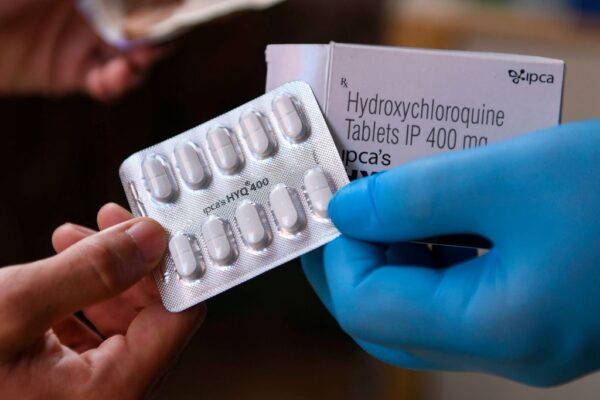
A newly published study of patients in New York has found that a widely touted drug for Covid-19 did not make a difference in the rate at which patients were intubated or died.
It’s an observational study rather than a randomized one, but it is only the latest one to show that the drug, hydroxychloroquine, may have little or even no efficacy in treating Covid-19. The study, conducted by researchers at New York-Presbyterian Hospital—Columbia University Irving Medical Center, was published Thursday in the New England Journal of Medicine.
The study ultimately included 1,376 patients at the hospital who had been confirmed to have Covid-19 through swab tests. Of those, 811 received hydroxychloroquine – a drug normally used to treat malaria and certain rheumatic diseases – at 600mg twice on the first day, followed by 400mg a day for a median of five days. The patients treated with the drug were more severely ill than those who did not receive it.
Among the patients who received the drug, 262, or 32.3%, experienced an event of intubation or death, compared with 84, or 14.9%, who did not receive it. However, the study found there was no significant association between hydroxychloroquine and intubation or death, with a hazard ratio of 1.04 indicating an approximately equal probability of events between the two groups. The researchers concluded that randomized, controlled trials of the drug are needed.
Although multiple randomized, controlled trials of hydroxychloroquine are underway, the study results will no doubt add to the controversy surrounding the drug, which gained prominence when President Donald Trump began touting it as a “game changer” earlier this year. Since then, he has backed off, and the Food and Drug Administration warned against using the drug outside hospital settings and clinical trials even after it issued a narrow emergency use authorization.
Earlier this week, Rick Bright, the ousted director of the Department of Health and Human Services’ Biomedical Advanced Research and Development Authority, filed a formal whistleblower complaint in which he reiterated that he had been forced out of his job and into a position of lesser importance due to his objections to the promotion of hydroxychloroquine, which he attributed to a prioritization of politics and cronyism over science.
The FDA last week gave an EUA to Gilead Sciences’ remdesivir, based on data from a National Institute of Allergy and Infectious Diseases-sponsored Phase III trial showing that it shortened the amount of time for patients to recover from Covid-19. However, while the study showed a trend in mortality in favor of the drug, it did reach statistical significance on that measure, making it difficult to tease out whether the result was due to the drug or simply chance.
Photo: Narinder Nanu, AFP, via Getty Images










